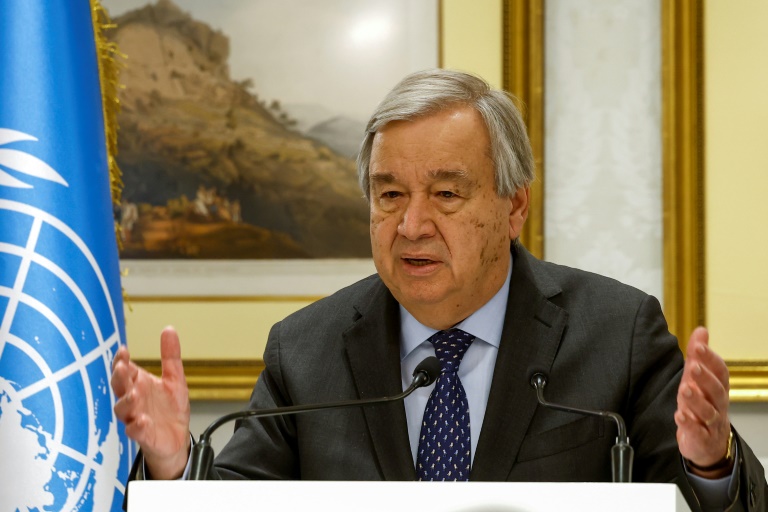UN Secretary-General Antonio Guterres said on Monday that international envoys to Afghanistan hope the Taliban will participate in their future meetings after the authorities ignored an invitation to hold talks in Doha.
Guterres said in a press conference that the delegations discussed “creating conditions at a future meeting for the presence of the de facto authorities in Afghanistan” after they refused to join the two-day conference that concluded on Monday in the Gulf country. .
The Taliban administration in Kabul has not been formally recognized by any other government since they took power and imposed a strict interpretation of Islam, with women subject to laws that the United Nations has described as “gender apartheid.”
In the wake of the Taliban's return to power in 2021, the international community has grappled with its approach to the country's new rulers.
The United Nations had invited the Taliban authorities to participate, after being excluded from the first meeting in May.
Advertisement – Scroll to continue
But the Kabul government said it would only participate in the talks if it was Afghanistan's sole representative at the meetings, excluding civil society groups.
The United Nations had said that women were among the representatives of Afghan civil society in the gathering of national and regional special envoys to Afghanistan.
The second request was for the Taliban government delegation to meet with the Secretary-General of the United Nations and have the opportunity to present its position.
Advertisement – Scroll to continue
Guterres said he received an “unacceptable” set of conditions for participation.
“These circumstances, in the first place, deprived us of the right to speak with other representatives of Afghan society,” he said.
Many governments, international organizations and aid agencies have cut or severely reduced their funding to Afghanistan in response to the Taliban's policies – dealing a serious blow to the already struggling economy.
Advertisement – Scroll to continue
“One of our main goals is to overcome this impasse,” Guterres said, explaining that a roadmap must be developed “in which the concerns of the international community are taken into account. But also the concerns of the de facto authorities in Afghanistan,” he said.
Guterres said the meeting, which included the United States, China, Pakistan and the European Union, reached “complete consensus” on proposals from an independent UN assessment on Afghanistan.
The evaluation recommended the appointment of a special UN envoy. This proposal is supported by Western countries, but the Taliban authorities reject it.
Advertisement – Scroll to continue
Guterres said he would begin “a serious consultation process to find out whether there are conditions for the formation of a UN envoy.”
He added that the proposed envoy could “have a coordination role” in the country “and work effectively with the de facto authorities in Afghanistan.”
The meeting was also aimed at achieving a more coordinated response for the country.
Advertisement – Scroll to continue
Guterres said that the formation of a “contact group” that includes “a limited number of countries capable of taking a more coordinated approach in dealing with the de facto authorities” had been discussed.
He added that this could include permanent members of the UN Security Council, neighboring countries and relevant donors but “it is up to member states to decide how to establish it.”
He added: “I think it will be a way to achieve coherence in the way the international community deals with the de facto authorities in Afghanistan.”
csp/it

